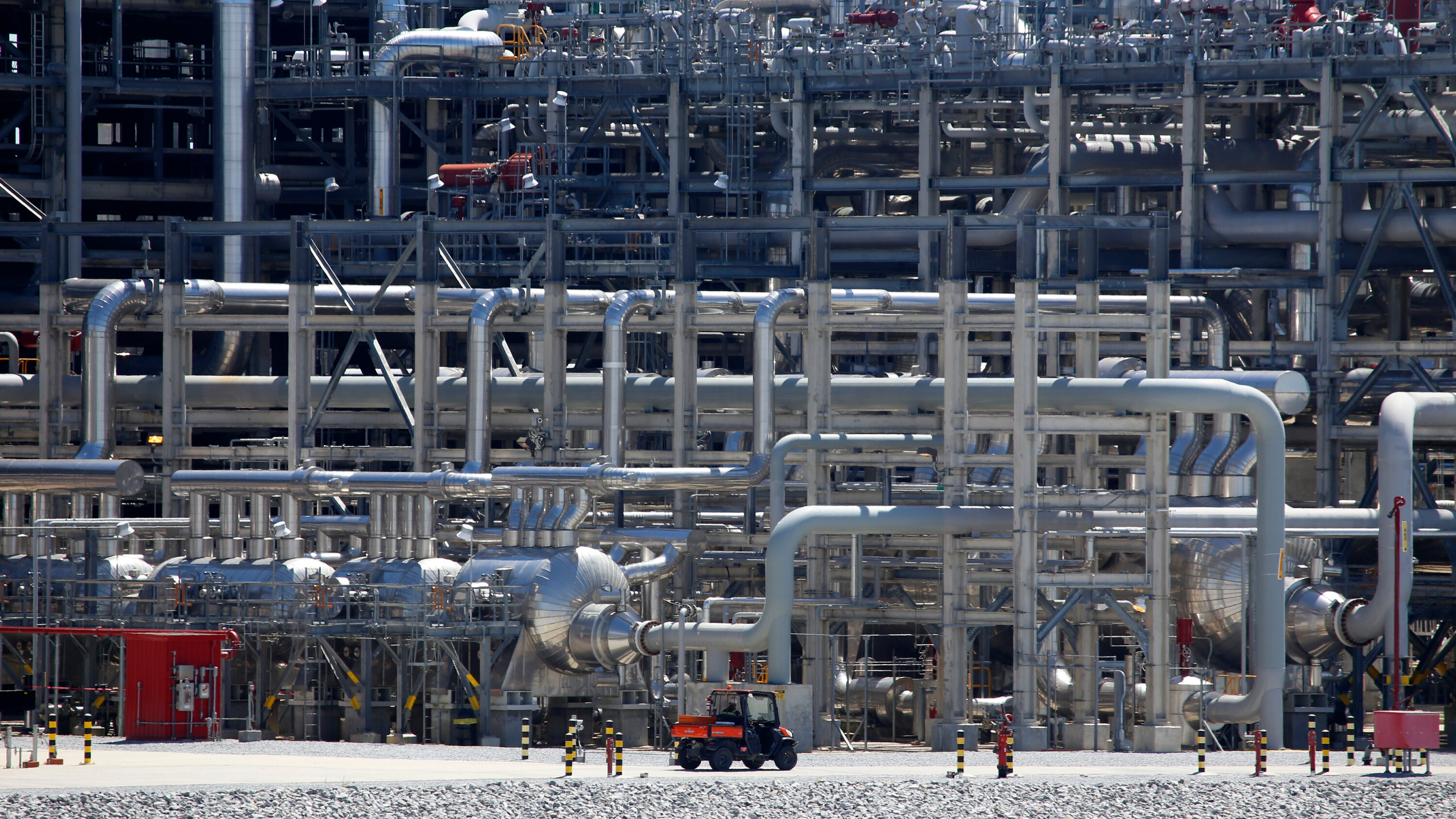Study Finds U.S. Gas Exports May Threaten Economy and Environment in Surprising Ways
2024-12-17 20:46:57
Instructions

The much-anticipated study has drawn sharp criticism from the oil and gas industry, but it may also bolster the efforts of environmental groups aiming to halt the construction of new export terminals. This development could significantly influence the ongoing debate over fossil fuel exports and environmental preservation, highlighting the tensions between economic interests and ecological sustainability.
New Study Stirs Debate Over LNG Export Terminals Amid Rising Environmental Concerns
A newly released study has ignited significant controversy, facing backlash from the oil and gas sector while potentially providing valuable support for environmental advocates aiming to halt the expansion of liquefied natural gas (LNG) export facilities.Examining the Implications of LNG Expansion on Climate Change
The recent findings delve into the environmental impacts linked to the construction and operation of new LNG export terminals. These facilities, essential for transporting natural gas from production sites to international markets, have been under increased scrutiny as climate change accelerates. This research reveals alarming data regarding greenhouse gas emissions associated with LNG operations, which could spark renewed discussions about the long-term viability of natural gas as a "clean" energy alternative.
Critics argue that the expanding LNG industry contributes significantly to carbon emissions, undermining global efforts to mitigate climate change. This has prompted environmental groups to mobilize, using the study's findings as a catalyst for advocacy against further export terminal developments. Advocates stress that the urgency of climate action requires rethinking energy dependency and transitioning to renewable resources.
Industry Response: Defending Natural Gas as a Cleaner Energy Source
The oil and gas industry has not remained silent in the wake of this study. Industry representatives assert that natural gas emits fewer greenhouse gases compared to coal and oil, positioning LNG as a critical component in the transitional phase towards a more sustainable energy future. They argue that the findings may not accurately reflect recent technological advancements that have made LNG extraction and transportation more efficient and less harmful to the environment.
Moreover, proponents emphasize that LNG export terminals play a vital role in energy security and economic development. The industry's position hinges on the argument that LNG can be a bridge fuel, easing the shift from heavily polluting fossil fuels toward cleaner energy alternatives. However, this perspective is increasingly challenged, requiring a careful reconsideration of the overall impact versus the perceived benefits.
The Role of Policy in Shaping the Future of LNG Exports
As these discussions unfold, the influence of policy becomes paramount. Legislative measures and regulatory frameworks are being scrutinized as potential barriers or facilitators of LNG project approvals. This study may influence policymakers to reconsider the environmental compliance requirements for new terminal projects, pressuring them to enhance transparency and enforce stricter emissions standards to mitigate climate impact.
Furthermore, stakeholders in both government and the private sector will need to navigate this increasingly complex landscape, balancing economic interests with ecological responsibilities. The outcomes of these dialogues could decisively shape the future trajectory of LNG exports in the coming years, either invigorating or stymying projects, depending on the public and political response to the emerging evidence.
Grassroots Movements and Public Perception: The Power of Advocacy
The implications of the study extend beyond industry and policy debates, impacting grassroots movements and public sentiment. Advocacy groups are leveraging this opportunity to raise awareness regarding the potential risks posed by LNG exports, calling for heightened scrutiny. Public perception of natural gas continues to evolve, with many beginning to see it through a critical lens—assessing the implications of reliance on a resource tied to greenhouse gas emissions.
Through campaigns, social media outreach, and public forums, these groups aim to rally supporters and influence local and national narratives around energy consumption. Their efforts have grown in response to heightened climate anxiety, with many citizens demanding a more aggressive commitment to renewable energy sources. The power of public advocacy cannot be overstated as it can significantly sway policymakers and corporate actions.
The Controversy at the Center of Energy Transition Debate
This ongoing debate underscores a broader controversy central to the transition towards sustainable energy. Many environmentalists are calling for the complete divestment from all fossil fuels, while others believe in a pragmatic approach that involves reducing, not eliminating, fossil fuel use. The study acts as a crucial piece in this puzzle, providing insights that fuel these discussions.
As society grapples with the implications of climate change, the handling of fossil fuel exports, including LNG, will be a critical test of our commitment to sustainability. The balance between energy needs and environmental responsibility remains a contentious issue, one that requires ongoing assessment and flexible policy responses.
Looking Ahead: Future of LNG Export Terminals Amid Changing Dynamics
As the landscape for LNG exports continues to shift, the future of new terminal projects remains uncertain. The intersection of environmental concerns and energy demands will dictate the trajectory of LNG development and investment. Stakeholders must consider the long-term ramifications of current practices, questioning whether the benefits of these export terminals outweigh their ecological costs.
Ultimately, this complex scenario emphasizes the necessity for innovative solutions that can reconcile energy production with environmental stewardship. Collaborative efforts among industries, advocates, and policymakers will be paramount in forging a sustainable path forward. As public awareness grows, future developments in LNG expansion will likely be scrutinized with greater intensity, driving the conversation towards sustainable energy solutions that align with global climate goals.
